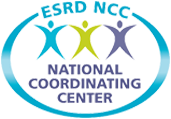Early identification, early education, timely referral to nephrology, and coordination with discharge planning will provide patient and family support in making decisions related to renal replacement therapy and vascular access. Hospital stays provide an additional opportunity for early diagnosis of CKD. Early identification of patients with kidney disease can slow the progression of the disease.
- Hospitals develop a comprehensive plan for early identification of patients with kidney disease to allow for interdepartmental coordination for protective measures programs to prevent nephrotoxicity or other causes of further kidney damage, to allow for vessel preservation, patient and family support, and vascular access planning and/or placement.
Changes for Improvement
Hospitals develop a comprehensive plan of care for patients at risk for or with kidney disease to include:
- Early identification of patients with kidney disease to allow for interdepartmental protective measures programs (pharmacy, radiology) to prevent nephrotoxicity and/or further kidney damage.
- Early identification of patients with kidney disease to allow for interdepartmental coordination (dietary, education, social services, case management) for patient and family support.
- Early identification of patients with kidney disease to allow for vessel preservation measures.
- Hospital care coordination infrastructure (attending physicians, case management, quality improvement, risk management, infection control, discharge planning, social services) to assist patients in arranging necessary care during and after a hospital stay to assure that CKD Stage 3B (eGFR 30 – 44) and CKD Stage 4 (eGRF 15 – 29) patients receive appropriate primary care follow-up and nephrology and/or surgical consults as needed.
- Hospital care coordination infrastructure (attending physicians, case management, quality improvement, risk management, infection control, discharge planning, social services) assists patients during and after a hospital stay in arranging necessary care that ensures CKD Stages 4 (eGFR 15 – 29) and 5 (eGFR <15) patients obtain appropriate vascular access assessment, coordination and placement as well as nephrology follow-up and education regarding renal replacement therapy options.
- Hospital care coordination infrastructure collaborates with local dialysis centers to develop and implement discharge documentation tools that communicate detailed vascular access placement plans for patients who choose hemodialysis as their renal replacement therapy option.
